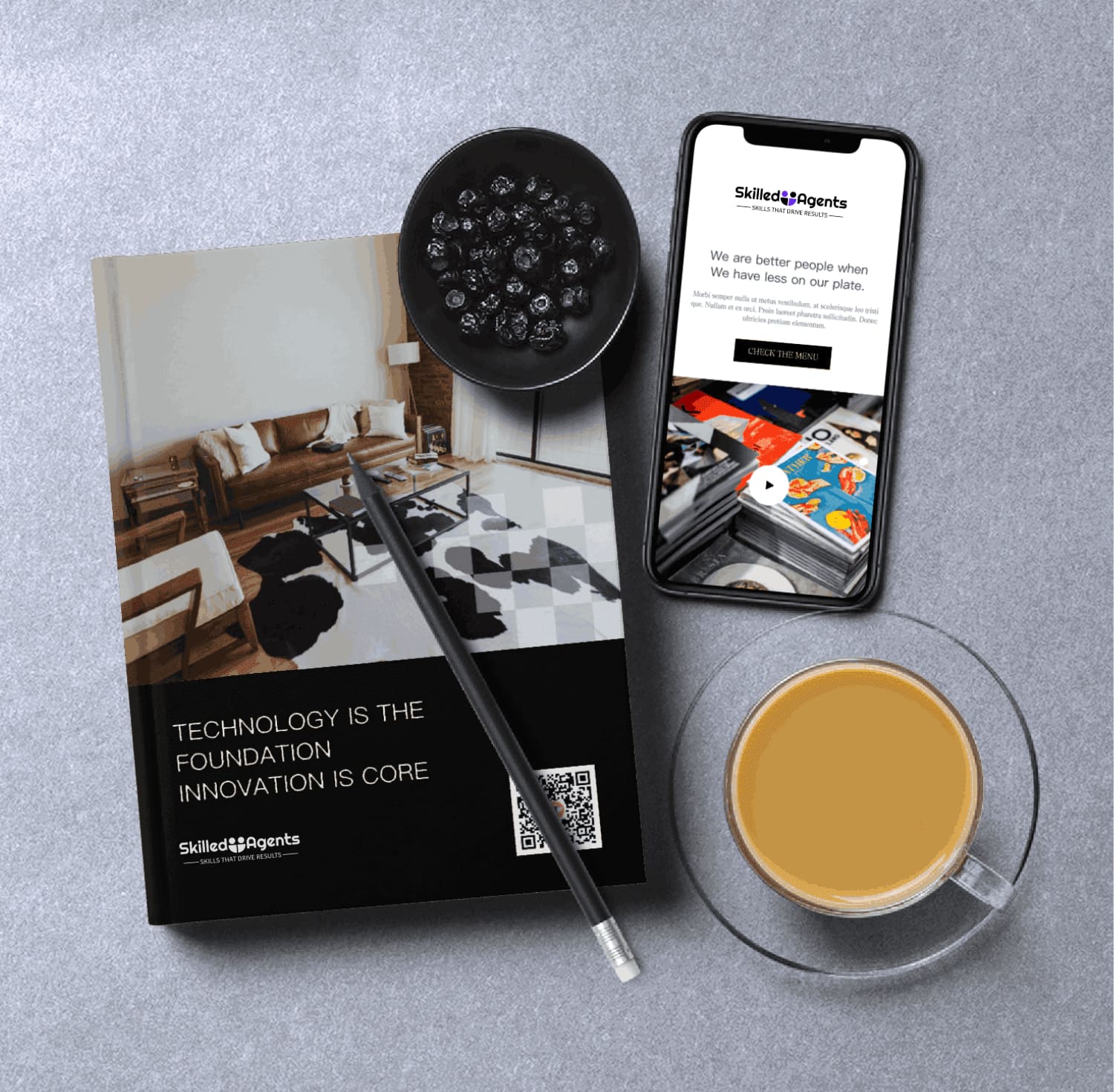In the fast-paced world of travel, managing customer relationships effectively can make or break your business. Whether you run a small travel agency or a large travel company, a Customer Relationship Management (CRM) solution tailored for the travel industry can be a game-changer. A well-implemented CRM for travel industry system can significantly enhance operational efficiency, reduce administrative burdens, and lead to increased customer satisfaction. Let’s delve into how CRM systems can revolutionize the travel sector by enhancing efficiency and improving customer satisfaction.
Table of Contents
Understanding CRM for the Travel Industry
A CRM system is a tool designed to manage a company’s interactions with current and potential customers. In the travel industry, this means organizing customer data, managing bookings, and personalizing customer experiences. It also involves capturing and analyzing customer feedback to continuously improve service offerings. By leveraging CRM technology, travel businesses can offer more personalized services, which is crucial in building customer loyalty and driving repeat business.
Why Use CRM for Travel?
The travel industry is highly competitive, with customer expectations continually rising. A CRM system helps travel companies stay ahead by providing tools to manage customer relationships more effectively. It enables businesses to understand customer needs better, forecast demand, and tailor offerings to meet specific client desires. Moreover, CRM systems facilitate the management of complex customer journeys, ensuring that every touchpoint is optimized for a seamless experience. With the travel landscape constantly evolving, a robust CRM system is an indispensable asset for any travel business looking to differentiate itself.
Key Benefits of CRM for Travel
- Improved Customer Service: CRMs help you track customer interactions, preferences, and feedback, enabling personalized service. This level of personalization not only enhances the customer experience but also builds trust and loyalty. Additionally, a CRM allows for the quick resolution of issues by providing staff with easy access to detailed customer histories.
- Increased Efficiency: Automate tasks like booking confirmations and reminders, freeing up staff to focus on more complex tasks. This automation reduces the potential for human error and allows travel agents to devote more time to enhancing customer experiences. Efficient task management can also lead to shorter response times, further boosting customer satisfaction.
- Data-Driven Decisions: Analyze customer data to understand trends, preferences, and areas for improvement. This insight allows businesses to make informed decisions, optimize marketing strategies, and improve service offerings. The ability to predict customer needs and adjust offerings accordingly can be a significant competitive advantage.
- Enhanced Marketing Strategies: Segment customers and tailor marketing campaigns to specific audiences. This targeted approach can lead to higher conversion rates and more effective use of marketing budgets. Personalization in marketing communications can result in stronger engagement and increased brand loyalty.

Choosing the Right CRM for Travel Agencies
Selecting the right CRM can be daunting with so many options available. A well-suited CRM should not only address your current needs but also scale with your business as it grows. Here are some features to look for to ensure you choose a CRM that aligns with your business goals and customer needs.
Essential Features of a Travel CRM
- Booking Management: Integrate with booking systems to manage reservations seamlessly. This feature should support real-time updates and synchronization to minimize the risk of overbooking or errors in reservation details.
- Customer Profiles: Store detailed customer information, including travel history and preferences. A comprehensive customer profile allows for personalized service and targeted marketing efforts, fostering deeper customer relationships.
- Automated Communication: Set up automated emails and messages for confirmations and reminders. This ensures timely communication with customers, enhancing their overall experience and reducing the workload on your staff.
- Reporting and Analytics: Access reports on sales, customer behavior, and marketing campaigns. Detailed analytics can provide insights into business performance and customer preferences, guiding strategic planning.
- Mobile Accessibility: Use the CRM on-the-go with mobile-friendly features. Mobile access is crucial for travel agents who need to manage bookings and customer interactions while on the move, ensuring uninterrupted service delivery.
Popular CRM Solutions for Travel
- Salesforce: Known for its robust features and customization options, Salesforce is a popular choice for larger travel companies. It offers extensive integration capabilities and advanced analytics, making it suitable for businesses with complex needs.
- Travel Contact: Designed specifically for the travel industry, it offers features like itinerary management and supplier integration. Its industry-specific design makes it ideal for travel businesses looking for a tailored solution.
- Zoho CRM: Offers a cost-effective solution with essential CRM features and scalability. Zoho CRM is particularly appealing to small and medium-sized travel agencies due to its affordability and ease of use.
Implementing CRM for Travel Agency
Once you’ve chosen a CRM for travel agency, it’s crucial to implement it effectively to reap the benefits. Proper implementation involves careful planning and execution to ensure that the CRM integrates well with existing processes and systems. Here’s a step-by-step guide to ensuring successful CRM implementation.
Steps to Successful CRM Implementation
- Define Your Goals: Determine what you want to achieve with the CRM, such as improving customer service or increasing sales. Clearly defined goals will guide the implementation process and help measure success.
- Train Your Team: Ensure staff are well-trained in using the CRM to maximize its potential. Training should cover both technical aspects and the strategic use of CRM features to enhance customer interactions.
- Integrate with Existing Systems: Seamlessly connect the CRM with your current booking and communication systems. This integration is vital to ensure that all customer data is centralized and accessible from one platform.
- Monitor and Adjust: Regularly review CRM data to make informed decisions and adjust strategies as needed. Continuous monitoring allows for the identification of trends and potential areas for improvement, ensuring that the CRM continues to deliver value.
Overcoming Challenges in CRM Adoption
While CRM systems offer many benefits, their adoption can come with challenges. Resistance to change, data migration complexities, and cost concerns are common issues that can hinder successful CRM adoption. However, with strategic planning and management, these challenges can be effectively addressed.
Common Challenges
- Resistance to Change: Staff may be hesitant to adopt new technology. This resistance can stem from a lack of understanding of the CRM’s benefits or fear of technological complexity.
- Data Migration: Moving existing data to the new CRM can be complex. Ensuring data integrity and accuracy during migration is crucial to maintaining business continuity.
- Cost Concerns: CRM systems can be expensive, especially for small agencies. The initial investment may seem daunting, but the long-term benefits often outweigh the costs.
Solutions
- Provide Training: Educate staff on the benefits and functionalities of the CRM. Comprehensive training can alleviate fears and foster enthusiasm for using the new system.
- Plan Data Migration Carefully: Work with CRM providers to ensure smooth data transfer. A well-planned migration strategy can minimize disruptions and ensure data accuracy.
- Evaluate ROI: Focus on the long-term benefits and cost savings of CRM adoption. Consider the potential for increased efficiency, enhanced customer satisfaction, and revenue growth when assessing CRM value.

Future of CRM in the Travel Industry
As technology evolves, so do CRM for travel industry. New advancements are constantly reshaping how travel businesses interact with their customers and manage operations. Staying informed about emerging trends can help travel agencies maintain a competitive edge and leverage new opportunities.
Emerging Trends
- AI and Machine Learning: These technologies can enhance CRM capabilities by predicting customer behavior and automating routine tasks. AI-driven insights can help travel agencies anticipate customer needs and personalize offerings, leading to improved customer satisfaction.
- Integration with Social Media: Engage with customers on platforms they frequent by integrating social media with CRM for travel companies. Social media integration allows for real-time customer interaction and feedback, enhancing engagement and brand loyalty.
- Personalization: Use CRM data to offer highly personalized travel experiences. Tailoring experiences based on individual preferences can significantly enhance the customer journey and foster long-term loyalty.
Frequently Asked Questions
What is a CRM and why is it important for travel agencies?
A Customer Relationship Management (CRM) system is a tool that helps businesses manage interactions with current and potential customers. For travel agencies, a CRM is crucial as it organizes customer data, manages bookings, and enhances customer experiences through personalization. This leads to improved customer satisfaction and loyalty, which are vital in the highly competitive travel industry.
How can a CRM improve customer service in the travel sector?
A CRM system improves customer service by tracking customer interactions, preferences, and feedback. This allows travel agencies to provide personalized service, quickly resolve issues, and anticipate customer needs. With detailed customer histories at their fingertips, staff can offer tailored recommendations and promptly address inquiries, significantly enhancing the overall customer experience.
What features should I look for in a CRM for my travel agency?
When selecting a CRM for travel agency, look for features such as booking management, customer profiling, automated communication, reporting and analytics, and mobile accessibility. These features ensure that the CRM can manage reservations seamlessly, offer personalized marketing, provide insights into customer behaviors, and allow staff to work efficiently from anywhere.
Are there specific CRM solutions designed for the travel industry?
Yes, there are several CRM for travel industry. Popular options include Salesforce, which offers robust customization and integration features; Travel Contact, tailored for itinerary management; and Zoho CRM, known for its cost-effectiveness and scalability. Choosing a travel-specific CRM can enhance functionality and better meet the needs of travel businesses.
What challenges can arise when implementing a CRM, and how can they be overcome?
Common challenges in CRM implementation include resistance to change among staff, data migration complexities, and cost concerns. To overcome these challenges, provide comprehensive training to staff, create a well-planned data migration strategy to maintain data integrity, and focus on the long-term return on investment (ROI) that a CRM offers, emphasizing its benefits for efficiency and customer satisfaction.
Conclusion
CRM systems are essential tools for travel agencies and companies looking to enhance efficiency and customer satisfaction. By choosing the right CRM and implementing it effectively, travel businesses can streamline operations, improve service, and stay competitive in a dynamic industry. The right CRM not only supports current business operations but also prepares the company for future growth and technological advancements.
Investing in a CRM solution tailored for the travel industry is not just a smart decision—it’s a necessary one for those looking to thrive. Start exploring CRM options today to take your travel business to the next level. The potential for enhanced customer relationships, increased operational efficiency, and improved profitability makes CRM an invaluable asset in the travel sector.
